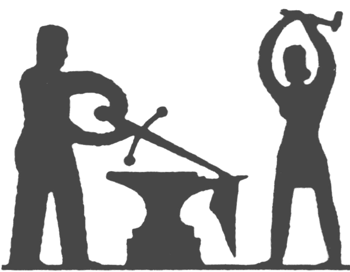Luke 1:57-66, 80
When the time arrived for Elizabeth to have her child she gave birth to a son.
Her neighbors and relatives heard
that the Lord had shown his great mercy toward her, and they rejoiced with her.
When they came on the eighth day to circumcise the child, they were going to call him Zechariah after his father,
but his mother said in reply,
“No. He will be called John.”
But they answered her,
“There is no one among your relatives who has this name.”
So they made signs, asking his father what he wished him to be called. He asked for a tablet and wrote, “John is his name,”
and all were amazed.
Immediately his mouth was opened, his tongue freed,
and he spoke blessing God.
Then fear came upon all their neighbors,
and all these matters were discussed
throughout the hill country of Judea.
All who heard these things took them to heart, saying,
“What, then, will this child be?”
For surely the hand of the Lord was with him.
The child grew and became strong in spirit,
and he was in the desert until the day
of his manifestation to Israel.
The Church observes the Nativity of John the Baptist as a Solemnity, which is to say that it is something less than a major Feast, and at first glance, it is not hard to see why. John’s birth isn’t even mentioned in any of the Gospels, except for Luke, and even there it reads like a briefly noted undercard to the main event, the birth of Christ. Most scholars would probably conjecture that this is because the early Church didn’t want there to be any confusion (which means that there probably was) about Jesus being the central figure of human history and foundation of our faith.
But the birth of John the Baptist is the starting point of that faith. It is the announcement of the New Testament age, no less than the first fulfillment of the promise spoken by the angel Gabriel to Mary at the Annunciation: Nothing will be impossible for God.” (Luke1:37). Heard in the context of empire and occupation into which both John and Jesus were born, that promise must be properly understood to have served notice that the boundaries of possibility imposed by the dominant system were about to no longer apply.
In our own context of empire, it might justly be asked of those who profess a New Testament faith: “Is there anyone left in your churches with any inclination to embrace the impossible, or to stake anything substantive on shrinking its scope?” After all, is that not precisely what we are called to do by the first two models of faith that the New Testament presents? While our contemporary understandings of personal maturity, psychological health, and eben sane politics are commonly considered inseperable from an adjustment to what is real and possible, Zechariah and Mary were obliged to cast aside their questions – “How shall I know this?” “How can this be?” – and to begin to shape their lives around the absurd and the impossible.
Personally, I’ve become convinced that, in the post-9/11 age, Christian faith and practice in the United States are superfluous and irrelevant, if not actually a capitulation to the demonic, without this
maladjustment to “reality” and “possibility.” As our national crisis deepens, there’s a growing realization that the government and electoral politics of this country have been taken over by a particularly toxic strain of evangelicalism which despises ecology, sanctifies extreme personal wealth while demonizing the poor, assumes the ideology of American exceptionalism as an article of faith, and welcomes the prospect of nuclear annihilation as heralding the Second Coming of Christ. This agenda and its devotees are no longer a fringe element. They have become the dominant political force, as brilliantly exposed in Chris Hedges” book, American Fascism, published a decade ago. Essentially, then, the public face of Christianity has become widely recognized as beholden to principles antithetical to the teachings and example of Christ.To the extent that we fail to resist this movment and the grievous harm it wreaks, both in our communities and out collective conscience,we stipulate to a worldview so infected with fear and hopelessness that it renders the practice of the Sermon on the Mount impossible. Ultimately, it was this realization that made my decision to join with the Kings Bay Plowshares inevitable.
The great Jesuit theologian Pierre Teilhard de Chardin, speaking and writing in the first half of the 20th century, said that we were moving into a time when the question of faith would no longer be answered by whether one believes or does not believe in God, but by whether one believes or does not believe in the future of the world. How eerily prophetic those words have become for Christians in the United States as we grapple with possibilities and impossibilities, and discern the demands of the time.
